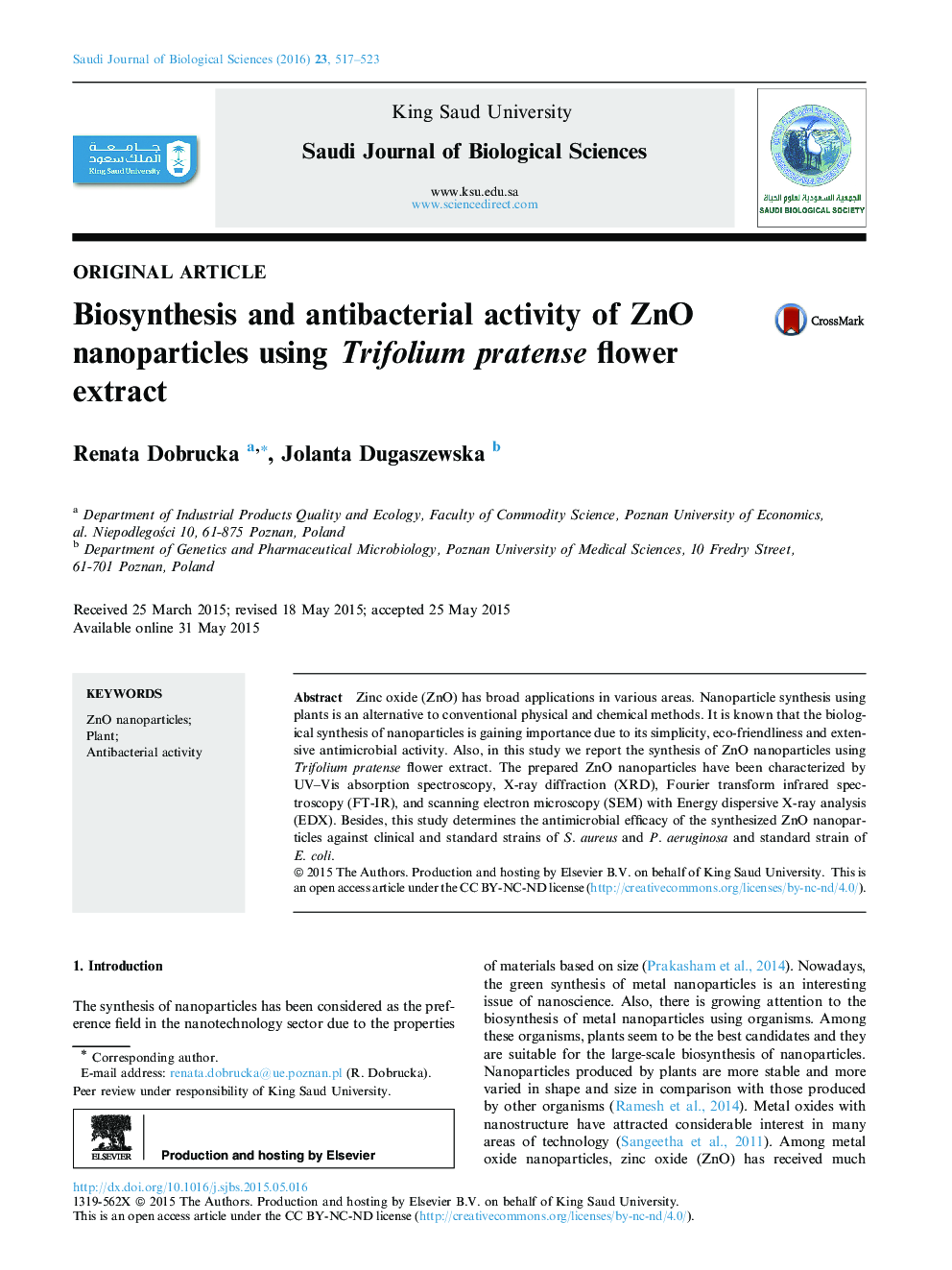| Article ID | Journal | Published Year | Pages | File Type |
|---|---|---|---|---|
| 4406159 | Saudi Journal of Biological Sciences | 2016 | 7 Pages |
Abstract
Zinc oxide (ZnO) has broad applications in various areas. Nanoparticle synthesis using plants is an alternative to conventional physical and chemical methods. It is known that the biological synthesis of nanoparticles is gaining importance due to its simplicity, eco-friendliness and extensive antimicrobial activity. Also, in this study we report the synthesis of ZnO nanoparticles using Trifolium pratense flower extract. The prepared ZnO nanoparticles have been characterized by UV-Vis absorption spectroscopy, X-ray diffraction (XRD), Fourier transform infrared spectroscopy (FT-IR), and scanning electron microscopy (SEM) with Energy dispersive X-ray analysis (EDX). Besides, this study determines the antimicrobial efficacy of the synthesized ZnO nanoparticles against clinical and standard strains of S. aureus and P. aeruginosa and standard strain of E. coli.
Related Topics
Life Sciences
Environmental Science
Ecology
Authors
Renata Dobrucka, Jolanta DÅugaszewska,
